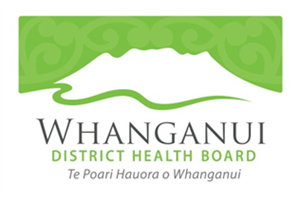Infection control tips available for Air Chathams and others
Published on 09 July 2020

Whanganui District Health Board Media Release
The team at Air Chathams, which flies between Whanganui and Auckland, were recently given tips on personal protective gear and hygiene to complement their customer service and safety practices.
Kath Harding, infection prevention clinical nurse specialist for WDHB and Margaret Gosnell, nurse educator, flew to Auckland in June to teach infection control practices for the Covid-19 pandemic and beyond.
“We travelled to Auckland to teach ‘donning and doffing’ of personal protective equipment and some other hygiene tips in the Air Chathams hangar in Auckland,” says Ms Harding.
“We spoke to the team about the use of gloves and masks, social distancing, how the Covid-19 virus works and how Air Chathams can extra safeguard their staff using practices which will work for their business,” says Ms Harding.
Ms Harding says the ‘five moments of hand hygiene’ which are used in hospital settings to identify the five touchpoints where health professionals must wash their hands, also applies to any organisation where people are involved.
“We asked Air Chathams, ‘in your business, what are the five moments?’ We don’t tell people how to run their business but we ask them to think about it. For example, do you wash or sanitise your hands every time you touch someone’s luggage or when you physically help someone? Do you make a cleaning routine part of everybody’s role on a regular schedule?
“I like to make it a bit of fun and interactive by asking questions about how processes operate in the business and how infection control can tie in with that ,” says Ms Harding.
Ms Harding says, internationally, airlines are considering screening passengers at airports in future for Covid-19 and other infectious diseases and that is something domestic airlines may also consider: “We are a heartbeat away from New York,” she says.
She and other WDHB staff have visited residential care facilities and other community health providers and infection control education sessions are available to any business or organisation who needs it: “This is part of our role. Anyone can contact us and we can offer a similar service.”
“We know infection control is not the sexy part of health care but it is often infections which make us very unwell and can lead to complications. Two things that can protect us is hand hygiene and cleaning things, which is why it’s audited.”
“I don’t think people knew as much about what infection control as they do now because of Covid-19. People have tried hard with their infection control practices and I hope there have been some lessons which have come out of the pandemic, but this may not even be the ‘big one’ the World Health Organisation is predicting.
“I’d like people to think about practices in daily life and take a moment to think about all the regular processes we do and consider when we wash our hands and when we clean,” she says.
Ms Harding adds that when it was time to check in to the flight back to Whanganui, the two flight attendants had affixed their masks properly following the education session, which Ms Harding was very pleased to see.
To find out more about infection control for your workplace or business, please email kathryn.harding@wdhb.org.nz